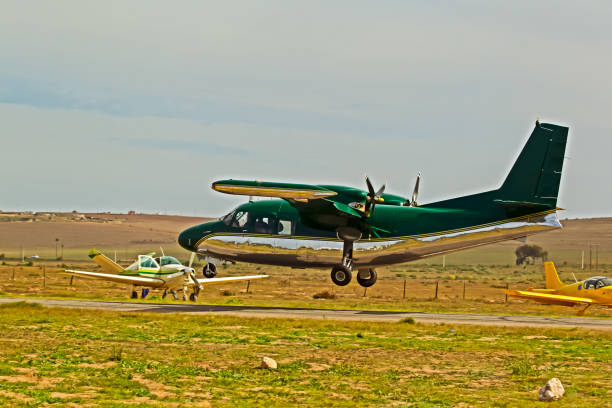Soaring High: A Comprehensive Guide to Aviation Scholarships in South Africa
The thrill of flight, the awe-inspiring landscapes from above, and the challenge of mastering complex aviation systems – these are just a few things that ignite the passion for aviation in many South Africans. However, pursuing a career in aviation, whether as a pilot, air traffic controller, or aviation engineer, can be expensive. This comprehensive guide serves as your flight plan to navigate the landscape of aviation scholarships in South Africa.
Advertisements
Unveiling the Scholarship Landscape – Exploring Diverse Opportunities
We’ll take off by exploring the diverse range of aviation scholarships available in South Africa, including those offered by:
- Government Programs: National Student Financial Aid Scheme (NSFAS) provides financial support for qualifying students pursuing aviation-related degrees.
- Universities and Flight Schools: Many universities and flight schools in South Africa offer scholarships specifically for aviation programs. These might be merit-based, needs-based, or specific to particular aviation disciplines (e.g., pilot training, air traffic control).
- Aviation Industry Organizations: The South African Civil Aviation Authority (SACAA), airlines, and aviation industry associations often offer scholarships or bursaries to support the development of future aviation professionals.
- International Scholarship Programs: Explore opportunities offered by international organizations or airlines that might support South African students pursuing aviation qualifications.
Building Your Wings – Preparing a Competitive Application
Preparation is key to a successful scholarship application. Here’s how to strengthen your candidacy:
- Academic Excellence: Maintain strong grades, particularly in mathematics, science, and physics, which are crucial foundations for aviation studies.
- Passion and Motivation: Demonstrate a genuine passion for aviation through essays, letters of recommendation, and extracurricular activities related to aviation (e.g., flight simulator experiences, aviation clubs).
- Medical Fitness: Meet the stringent medical requirements for aviation professions. Schedule medical examinations early on to avoid any potential delays in your application process.
- Flight Experience: While not always mandatory, accruing flight hours through gliders, microlights, or introductory flying lessons demonstrates your commitment and initiative.
Crafting a Compelling Flight Plan – Strategies for Scholarship Success
Now that you’ve prepared your wings, let’s learn how to navigate the scholarship application process effectively:
- Start Early: Begin your scholarship search well in advance of application deadlines. Researching opportunities early allows ample time to gather documents and prepare strong applications.
- Research and Tailor: Don’t send a generic application. Meticulously research each scholarship and tailor your essays and supporting materials to align with their specific criteria and selection process. Highlight experiences or skills relevant to the scholarship’s objectives.
- Strong Application Package: Ensure your application package is complete, well-organized, and free of errors. Include all required documents, transcripts, essays, letters of recommendation, and flight logbooks (if applicable).
- Seek Guidance: Don’t hesitate to seek guidance from career counselors, teachers, or aviation professionals. Their insights can be invaluable in refining your application materials and interview skills.
Beyond Scholarships – Exploring Alternative Funding Options
While scholarships offer valuable support, securing a robust financial aid package might require considering other avenues:
- Student Loans: Student loans can be a viable option to bridge the funding gap. However, borrow responsibly and understand the long-term repayment implications. Only borrow what’s absolutely necessary.
- Part-Time Work: Explore part-time work opportunities within the aviation industry. This could involve working at airports, ground handling companies, or flight schools. Such experience can bolster your resume and provide valuable industry insights.
- Military Service: The South African Air Force (SAAF) offers pilot training programs for qualifying candidates. Military service comes with a commitment, but it can be a rewarding path to secure aviation qualifications and gain valuable flying experience.
- Financial Aid Programs: Universities or flight schools might offer financial aid programs or payment plans to assist students in managing aviation program costs.
Building a Sustainable Career in Aviation – Beyond Graduation
Having secured funding for your aviation education is a significant achievement. However, a successful career in aviation requires dedication, continuous learning, and strategic planning beyond graduation. This section equips you with the knowledge and strategies to navigate the exciting journey of building a fulfilling career in the aviation industry.
Advertisements
Continuous Learning – A Lifelong Commitment
The aviation industry is a dynamic and ever-evolving landscape. Technological advancements, regulatory changes, and evolving safety protocols necessitate a commitment to lifelong learning for all aviation professionals. Here’s how to stay ahead of the curve:
-
Professional Development Courses: Numerous professional development courses and workshops are offered by aviation industry associations, universities, and flight schools. These courses cover various topics, from advanced piloting techniques for experienced pilots to updates on air traffic control regulations for controllers. Taking advantage of these opportunities demonstrates your dedication to professional growth and ensures you possess the most current knowledge required for optimal job performance.
-
Industry Publications and Online Resources: Subscribe to aviation industry publications and utilize online resources to stay informed about the latest trends and developments. Many reputable aviation magazines, websites, and online forums offer valuable insights, news updates, and discussions on various aspects of the industry. Actively engaging with these resources allows you to stay current on critical industry knowledge and network with other aviation professionals.
-
Flight Simulators: Flight simulators offer valuable opportunities to practice procedures, hone skills, and stay proficient, particularly for pilots. Regular simulator sessions can help maintain muscle memory for critical maneuvers, test responses to emergency scenarios in a safe environment, and stay current with advancements in aircraft technology incorporated into modern simulators.
Networking – Building Relationships That Take Flight
Building a strong network within the aviation industry can be instrumental in career advancement. Here’s how to cultivate valuable connections:
-
Industry Events and Conferences: Attend industry events, conferences, and airshows. These events offer opportunities to network with established professionals, airline representatives, and potential employers. Prepare an elevator pitch highlighting your skills and career aspirations, and actively participate in discussions and presentations. Following up with relevant contacts you meet at these events can lead to future job opportunities or mentorship possibilities.
-
Professional Associations: Become a member of relevant professional aviation associations like the Aviation Association of South Africa (AASA) or the South African Civil Aviation Authority (SACAA) Safety Committee. These associations often host networking events, workshops, and conferences that provide valuable opportunities to connect with colleagues and potential mentors within your chosen aviation discipline.
-
Online Networking Platforms: Utilize online platforms like LinkedIn to connect with aviation professionals and organizations. Join relevant aviation groups, participate in discussions, and showcase your expertise. Building a strong online presence demonstrates your professionalism and can attract the attention of potential employers searching for qualified candidates.
Career Planning – Charting Your Course
The aviation industry offers a diverse range of career paths beyond the stereotypical pilot or air traffic controller. Here’s how to strategically plan your career trajectory:
-
Identify Your Niche: Aviation encompasses various specializations. Research different career paths and identify an area that aligns with your interests and skillset. Do you dream of soaring through the skies as a commercial airline pilot, or are you fascinated by the intricate world of aircraft maintenance engineering? Understanding your preferences will guide your career planning efforts.
-
Gain Relevant Experience: Seek opportunities to gain experience in your chosen field. Internships at airlines, maintenance facilities, or air traffic control centers provide invaluable hands-on experience and allow you to test the waters of your desired career path. Volunteer opportunities within aviation-related organizations can also demonstrate your commitment and passion for the industry.
-
Develop a Strong Resume and Cover Letter: Craft a compelling resume and cover letter tailored to each aviation job you apply for. Highlight your academic qualifications, relevant experience (including flight hours for pilots), technical skills, and soft skills like communication, teamwork, and problem-solving. Quantify your achievements whenever possible to showcase the value you can bring to a potential employer.
-
Prepare for Job Interviews: Research the company and prepare well for job interviews. Anticipate potential interview questions and formulate strong, concise answers that demonstrate your knowledge, experience, and enthusiasm for the aviation industry. Practice your interview skills with a friend or career counselor to ensure you present yourself confidently and effectively.
Advertisements






